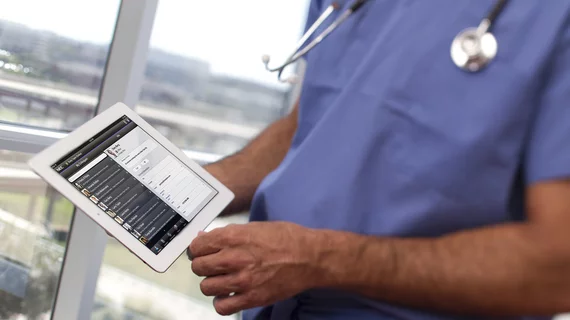SCAI 2021: Robotic-assisted PCI associated with strong patient outcomes, a high technical success rate
Robotic-assisted percutaneous coronary intervention (PCI) procedures are safe and effective, according to new data presented April 29 at the Society for Cardiovascular Angiography & Interventions (SCAI) 2021 Scientific Sessions.
Robotic-assisted PCI is designed to benefit specialists by allowing them to perform the procedure at a safer distance from any potential radiation exposure. Before it starts being implemented, however, a more thorough analysis was needed to ensure it doesn’t have a negative impact on patient outcomes.
Researchers enrolled nearly 1,000 patients with obstructive coronary artery disease (CAD) who presented at one of 20 facilities as prime candidates for robotic-assisted PCI. The average patient age was 65.4 years old and 73.5% of the cohort was male.
Overall, the clinical success rate was 97.8%. The device technical success rate—defined as the percentage of times that PCI was completed without unplanned manual assistance—was 86.5%.
“With the second generation of the robotic system, we are able to grow the field with a safe and effective PCI approach for not just simple lesions, but very complex lesions as well,” researcher Ehtisham Mahmud, MD, a former SCAI president and a cardiologist at the University of California, San Diego, said in a statement. “These findings will help fill a significant gap for physicians, by providing an opportunity for radiation protection—potentially allowing more physicians to extend their career. Moving forward, we plan to study the impacts of robotic PCI in a remote setting, to better reach rural areas with advanced care.”

